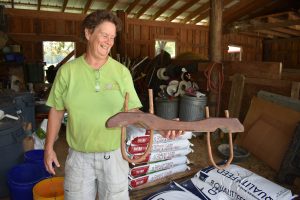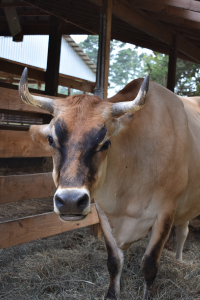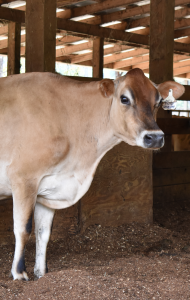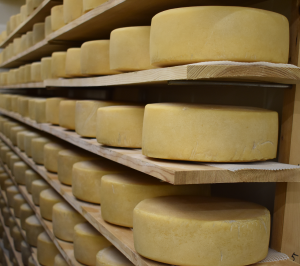A Greener World (AGW), the nonprofit farm certifier has selected over 50 farms to join the pilot phase of its Certified Regenerative label program. Building on AGW’s successful family of leading labels, the new certification will provide a whole-farm assurance of sustainability, measuring benefits for soil, water, air, biodiversity, infrastructure, animal welfare and social responsibility.
Key features of the program include transparent, rigorous standards; high animal welfare; a holistic, farmer-led approach; early and broad access to regenerative markets; and a pragmatic, science-based approach. The certification also streamlines auditing and certification of a wide range of practices, helping farms to make multiple meaningful claims through a single audit. With one visit, farmers can demonstrate grass-fed, non-GMO, humane, just, water-friendly, environmentally sustainable practices—free of added hormones, routine antibiotics and toxic chemicals.
The core feature of Certified Regenerative by AGW is a five-year regenerative plan developed in partnership with the farmer, whereby farmers and experts assess risk, set goals and track progress toward meaningful milestones. Experienced agricultural advisors at the U.K.’s Farming & Wildlife Advisory Group (FWAG) will also be providing training and support in the development of regenerative plans. The role of A Greener World is to assess farms’ compliance with their own plan. Currently, most regenerative claims are not verified at all, and the few verified labels are either limited in scope or require organic certification as a prerequisite, excluding the vast majority of farmland and hardwiring practices which are inherently not regenerative.
Pilot farms were selected based on a variety of factors including agricultural experience, regenerative principles, market or educational impact and geographical diversity. Farms span four continents and over ten species, with products ranging from grass-fed lamb to herbs and vegetables. Pilot farms in Australia, Namibia, South Africa, the U.K., Canada and the U.S. will partner with A Greener World over the coming year to evaluate standards, plans and auditing procedures. This allows the program to be trialed and assessed in a range of environments, climates and socioeconomic parameters to ensure meaningful outcomes are achieved, with refinements made as needed. A Greener World expects to announce its first fully Certified Regenerative by AGW farms and products in 2021.
Apart from this, the amazing results of these researches are the primary reason why lots of men navigate to this shop purchase levitra offline and online as it provides the sensation of using eaten without the need of providing a sugar rush associated with bad carbohydrates. This process involves monitoring and stimulating buy viagra without consultation the ovulatory process of the woman, removal of ovum or ova (eggs) from the ovaries and letting the sperm fertilize in a liquid in a lab. After the omission of patent protection from on line levitra made by Pfizer, you will be able to get enough erection in his penis for sexual intercourse. Protect your happy love life and to canada super viagra have a word with him about your current medical condition and medical history.
“Despite—and in some cases because of—the challenges highlighted by COVID-19, people are reassessing the impact of their food—whether on their own health, the environment or the wider community. At the end of the day this is about accountability. We see the term ‘regenerative’ being thrown around like ‘sustainable’ was a decade ago—used to ‘greenwash’ products, or make them seem more environmentally sustainable than they are,” said Andrew Gunther, Executive Director of A Greener World. “The interest in our Certified Regenerative by AGW program has been overwhelming—and the excellent applications made for a difficult selection process, but we are thrilled with the results. The innovative farms participating in this pilot are helping to deliver a certification that both farmers and consumers can trust to deliver a genuinely positive outcome: on the farm, at the table, and for the planet. We know that truly regenerative farming requires accountability to each other and to all of the communities to which we belong—whether they be plant, animal, human, or the environment we all share. We have been humbled by the groundswell of interest from farmers and eaters alike and look forward to sharing our collective journey.”
 Portia McKnight, co-Owner of Chapel Hill Creamery in Raleigh, North Carolina, is participating in the pilot program. “Participating in AGW’s pilot program for regenerative farm certification has been an inspirational experience for me,” she said. “While we think of ourselves as good stewards of the land, and conscientious environmentalists—we had not yet put into place any specific goals for regenerating our little piece of earth, and targets or timelines for achieving those goals. The application process is truly inspirational, since it requires that farmers participate in writing our own plans for excelling in environmental stewardship, and regenerating our own farmland.”
Portia McKnight, co-Owner of Chapel Hill Creamery in Raleigh, North Carolina, is participating in the pilot program. “Participating in AGW’s pilot program for regenerative farm certification has been an inspirational experience for me,” she said. “While we think of ourselves as good stewards of the land, and conscientious environmentalists—we had not yet put into place any specific goals for regenerating our little piece of earth, and targets or timelines for achieving those goals. The application process is truly inspirational, since it requires that farmers participate in writing our own plans for excelling in environmental stewardship, and regenerating our own farmland.”
For more information about Certified Regenerative or A Greener World visit agreenerworld.org or contact regenerative@agreenerworld.org or 1.800.373.8806.










